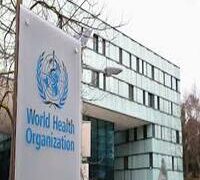A recent report by the World Health Organisation has attributed poor road safety standards compliance to the rising cases of deaths from road accidents in Africa in the past decade, with 250,000 lives lost in 2021 alone.
The WHO Status Report on Road Safety 2023 published in July 2024, revealed that post-crash care services were also inadequate in most countries, with fewer than one-third meeting recommended levels for pre-hospital care, emergency care, and rehabilitation services.
According to the report, between 2010 and 2021, the region recorded a 17 percent increase in road-related fatalities, accounting for nearly one-fifth of all road deaths globally, despite being home to only 15 percent of the world’s population, and three percent of its vehicles.
The report blamed this troubling trend on several factors, including insufficient road safety laws and standards, stating that most road traffic data systems in Africa only capture road-related deaths, excluding information on injuries and their severity, including long-term consequences such as disability.
The WHO’s report underscores that while road traffic deaths in other regions have been decreasing, Africa’s death toll continues to rise daily, with a 17 percent increase in road-related fatalities over the past 10 years.
In 2021, it noted that nearly 250,000 lives were lost on Africa’s roads, marking a significant rise compared to the global figure of 1.19 million lives, which saw a five percent decline during the same period, the report stated.
A recent report by the World Health Organisation has attributed poor road safety standards compliance to the rising cases of deaths from road accidents in Africa in the past decade, with 250,000 lives lost in 2021 alone.
The WHO Status Report on Road Safety 2023 published in July 2024, revealed that post-crash care services were also inadequate in most countries, with fewer than one-third meeting recommended levels for pre-hospital care, emergency care, and rehabilitation services.
According to the report, between 2010 and 2021, the region recorded a 17 percent increase in road-related fatalities, accounting for nearly one-fifth of all road deaths globally, despite being home to only 15 percent of the world’s population, and three percent of its vehicles.
The report blamed this troubling trend on several factors, including insufficient road safety laws and standards, stating that most road traffic data systems in Africa only capture road-related deaths, excluding information on injuries and their severity, including long-term consequences such as disability.
The WHO’s report underscores that while road traffic deaths in other regions have been decreasing, Africa’s death toll continues to rise daily, with a 17 percent increase in road-related fatalities over the past 10 years.
In 2021, it noted that nearly 250,000 lives were lost on Africa’s roads, marking a significant rise compared to the global figure of 1.19 million lives, which saw a five percent decline during the same period, the report stated.
The report also highlights that road infrastructure safety ratings are notably low, with only a small percentage of roads meeting acceptable standards for various users.
It noted that the WHO is working with countries to strengthen road safety through advocacy, technical support, awareness-raising, and training. This includes improving the capacity of countries like Zambia to collect and report road traffic death data.
“To achieve the United Nations General Assembly target of halving global road traffic deaths and injuries by 2030, WHO recommends a concerted effort to implement various interventions.
“These include developing sustainable transportation systems, enhancing legislative road safety frameworks, investing in data management systems, improving post-crash response, and conducting research tailored to the continent’s unique challenges,” the report added.
SOURCE: PUNCH NEWS





































